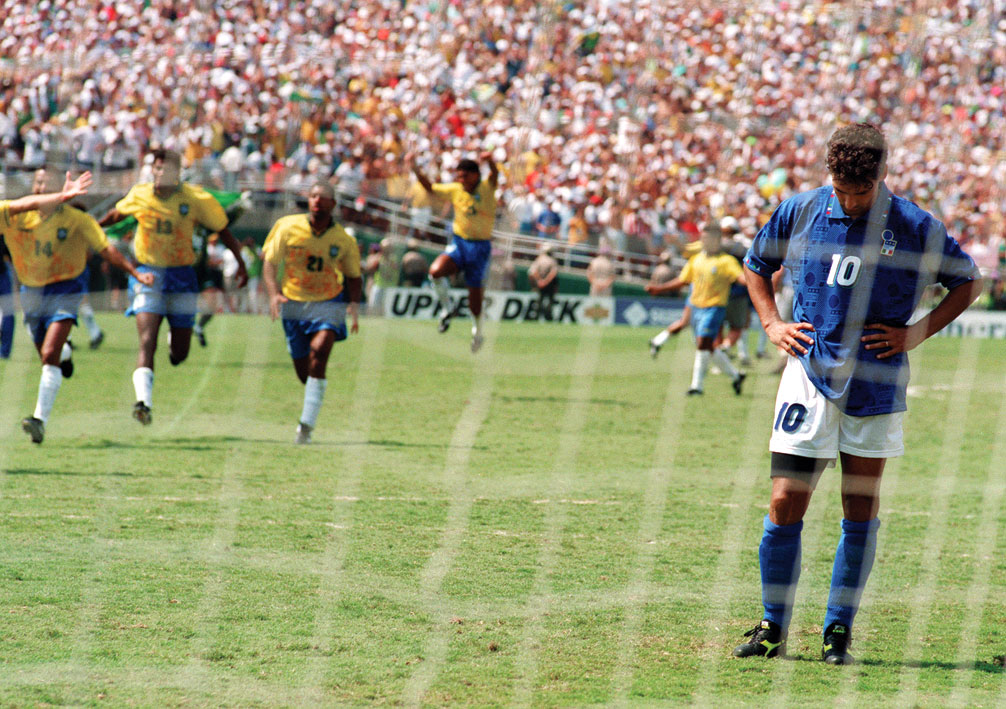- Reduces Psychological Trauma, Racism and Death Threats
While missed penalty kicks are usually the contributing factor in deciding a shootout, it will be the goals that decide ADG. This distinction is crucial, as a negative natured competition is transformed into a positive one. Indeed, while the shootout creates a hostile environment where players are routinely exposed to racism, death threats and psychological trauma, ADG creates heroes. In fact, there’s considerable first-hand evidence that a missed penalty in a critical match fosters serious long-term psychological trauma. - Showcases the Game
In stark contrast to the penalty shootout, ADG showcases the skill, speed, athleticism and dynamic beauty of modern football. Conversely, if the match was a cagey scoreless draw, supporters still have the opportunity to see brilliant and exciting goals during ADG. - Removes Advantage of Kicking First
A professor from The London School of Economics discovered that the team who takes the first kick in the penalty shootout wins 60% of the time.4 As the team who wins the coin toss can always elect to kick first, it's an inherently unfair situation for the opposition. - The scoring rate for penalties by professional players in the shootout since 1970 has been 73%.5 So, the team kicking second is usually playing catch-up and experiences greater pressure with each kick. ADG's scoring rate is estimated at 20%. The dramatically lower scoring rate removes the expectation that the player will always score. Of course, when the associated psychological pressure is removed, there won't be any advantage in attacking first in ADG. Teams can simply take turns attacking and defending. Read more.
- Coach and Strategy are Vital
After selecting his five attacking players, the coach instructs the remaining players which of the opposing team's attackers they should defend against. Furthermore, the coach can also strategise with his players on the best way to defend against their specific opponent. - Modern football has brought the coach centre stage and this is a great opportunity for them to utilise their knowledge and tactical skills to influence the outcome of the match. Contrast this with the shootout lottery, where the extent of their involvement is usually limited to asking players if they are willing to take a penalty kick.
- All Players Compete
As every player competes in ADG, it's a fairer test of a team's overall football ability. - Encourages Fair Play during the Match
Teams who have received yellow and red cards are at a disadvantage during ADG. This is fairer for teams who have played within the laws and the spirit of the game. See example. - Encourages Attacking Play during the Match
ADG counteracts a scenario of a team playing totally defensively, in the belief that their best chance of winning is via the penalty shootout. This is especially common when a team has had a player sent off and is referred to as “playing for penalties.” Read more. - Unlike the penalty shootout, ADG forms part of the official match, so warnings and cautions are carried forward into ADG. As any additional sanctions during ADG will likely hinder teams as they progress through the elimination stages of tournaments, there’s more incentive for teams to attack and try and win the game in normal play.
- Teams will be discouraged from substituting creative attacking players during the match, as their skills will be invaluable if ADG eventuates. By keeping these players on the field it increases the likelihood of a winning goal during normal play. See example.

"It is loading a bullet into the chamber of a gun and asking everyone to pull the trigger.
Someone will get the bullet, you know that.
And it will reduce them to nothing."
